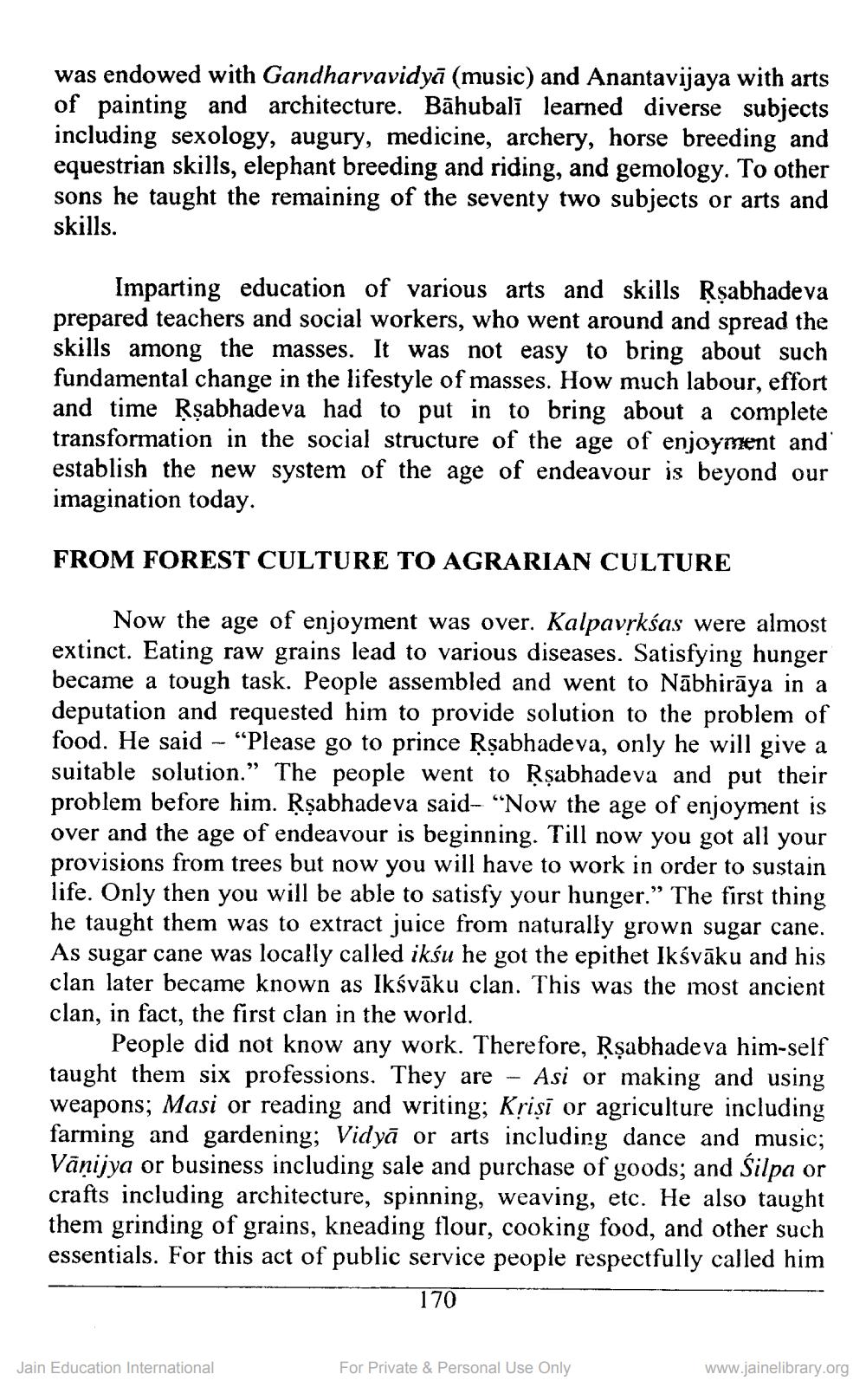________________
was endowed with Gandharvavidyā (music) and Anantavijaya with arts of painting and architecture. Bāhubalī learned diverse subjects including sexology, augury, medicine, archery, horse breeding and equestrian skills, elephant breeding and riding, and gemology. To other sons he taught the remaining of the seventy two subjects or arts and skills.
Imparting education of various arts and skills Rşabhadeva prepared teachers and social workers, who went around and spread the skills among the masses. It was not easy to bring about such fundamental change in the lifestyle of masses. How much labour, effort and time Rşabhadeva had to put in to bring about a complete transformation in the social structure of the age of enjoyment and establish the new system of the age of endeavour is beyond our imagination today.
FROM FOREST CULTURE TO AGRARIAN CULTURE
Now the age of enjoyment was over. Kalpavrkšas were almost extinct. Eating raw grains lead to various diseases. Satisfying hunger became a tough task. People assembled and went to Nābhirāya in a deputation and requested him to provide solution to the problem of food. He said – “Please go to prince Rşabhadeva, only he will give a suitable solution.” The people went to Rşabhadeva and put their problem before him. Rşabhadeva said“Now the age of enjoyment is over and the age of endeavour is beginning. Till now you got all your provisions from trees but now you will have to work in order to sustain life. Only then you will be able to satisfy your hunger.” The first thing he taught them was to extract juice from naturally grown sugar cane. As sugar cane was locally called ikśu he got the epithet Ikśvāku and his clan later became known as Ikšvāku clan. This was the most ancient clan, in fact, the first clan in the world.
People did not know any work. Therefore, Rşabhadeva him-self taught them six professions. They are - Asi or making and using weapons; Masi or reading and writing; Kriși or agriculture including farming and gardening; Vidyā or arts including dance and music; Vānijya or business including sale and purchase of goods; and silpa or crafts including architecture, spinning, weaving, etc. He also taught them grinding of grains, kneading flour, cooking food, and other such essentials. For this act of public service people respectfully called him
170
Jain Education International
For Private & Personal Use Only
www.jainelibrary.org




